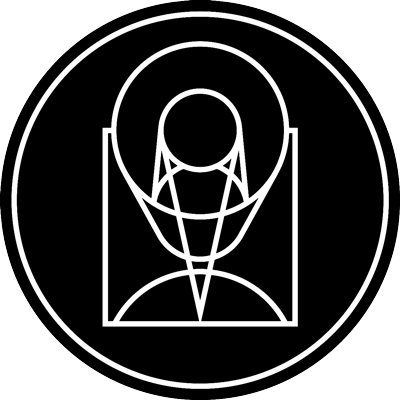Cassiopeia A Infrared Light Echo

spitzer_ssc2005-14a1 June 9th, 2005
Credit: NASA/JPL-Caltech/O. Krause (Steward Observatory)
NASA's Spitzer Space Telescope imaged the region around the supernova remnant Cassiopeia A (yellow ball) and surrounding clouds of dust (reddish orange). This picture, along with an image taken one year later, illustrate that a blast of light from Cassiopeia A is waltzing outward through through the dusty skies. This dance, called an "infrared echo," began when the remnant erupted about 50 years ago.
Cassiopeia A is the remnant of a once massive star that died in a violent supernova explosion seen from Earth 325 years ago. It consists of a dead star, called a neutron star, and a surrounding shell of material that was blasted off as the star died. This remnant is located 10,000 light-years away in the northern constellation Cassiopeia.Infrared echoes are created when a star explodes or erupts, flashing light into surrounding clumps of dust. As the light zips through the dust clumps, it heats them up, causing them to glow successively in infrared, like a chain of Christmas bulbs lighting up one by one. The result is an optical illusion, in which the dust appears to be flying outward at the speed of light. Echoes are distinct from supernova shockwaves, which are made up material that is swept up and hurled outward by exploding stars.This infrared echo is the largest ever seen, stretching more than 50 light-years away from Cassiopeia A. If viewed from Earth, the entire movie frame would take up the same amount of space as two full moons.Hints of an older infrared echo from Cassiopeia A's supernova explosion hundreds of years ago can also be seen.This Spitzer image was taken on November 30, 2003. The light echo is revealed when this image is compared with a companion image, taken on December 2, 2004.
Provider: Spitzer Space Telescope
Image Source: http://www.spitzer.caltech.edu/images/1437-ssc2005-14a1-Cassiopeia-A-Infrared-Light-Echo
Curator: Spitzer Space Telescope, Pasadena, CA, USA
Image Use Policy: http://www.spitzer.caltech.edu/info/18-Image-Use-Policy

- ID
- ssc2005-14a1
- Subject Category
- B.4.1.4. B.4.2.2.1.
- Subject Name
- Cassiopeia A, Cas A
- Credits
- NASA/JPL-Caltech/O. Krause (Steward Observatory)
- Release Date
- 2005-06-09
- Lightyears
- 11,000
- Redshift
- Reference Url
- http://www.spitzer.caltech.edu/images/1437-ssc2005-14a1-Cassiopeia-A-Infrared-Light-Echo
- Type
- Observation
- Image Quality
- Good
- Distance Notes
- Distance taken from Fast Facts.
- Facility
- Spitzer
- Instrument
- MIPS
- Color Assignment
- Pseudocolor
- Band
- Infrared
- Bandpass
- Mid-IR
- Central Wavelength
- 24000
- Start Time
- 2003-11-30
- Integration Time
- Dataset ID
- Notes
- Coordinate Frame
- ICRS
- Equinox
- J2000
- Reference Value
- 350.87372287283733, 58.7788251850606
- Reference Dimension
- Reference Pixel
- 1360.5, 354.5
- Scale
- -0.00034580963370685504, 0.00034580963370685504
- Rotation
- 86.0014076652
- Coordinate System Projection:
- TAN
- Quality
- Full
- FITS Header
- Notes
- Creator (Curator)
- Spitzer Space Telescope
- URL
- http://www.spitzer.caltech.edu
- Name
- Spitzer Space Telescope
- Telephone
- Address
- 1200 E. California Blvd.
- City
- Pasadena
- State/Province
- CA
- Postal Code
- 91125
- Country
- USA
- Rights
- http://www.spitzer.caltech.edu/info/18-Image-Use-Policy
- Publisher
- Spitzer Science Center
- Publisher ID
- spitzer
- Resource ID
- ssc2005-14a1.tif
- Resource URL
- http://www.spitzer.caltech.edu/uploaded_files/images/0001/1692/ssc2005-14a1.tif
- Related Resources
- Metadata Date
- 2012-03-22
- Metadata Version
- 1.1
Detailed color mapping information coming soon...











